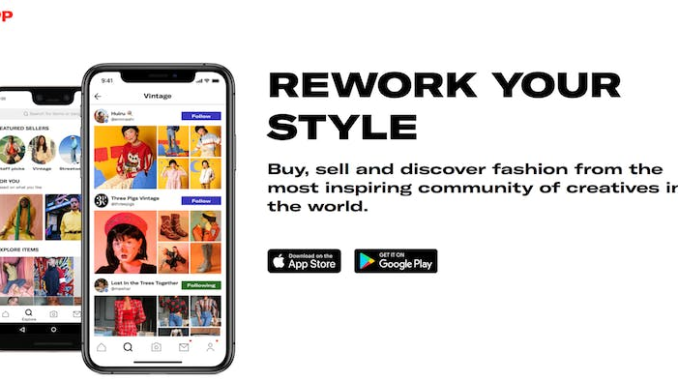
Depop’s Head of Digital Marketing Yoann Pavy spoke today at the Festival of Marketing 2019 and shared some of his philosophy of digital content and community.
Social media has played a big part in the success of Depop, a fashion marketplace which was founded in 2011 and now boasts more than 15 million users in every country in the world. There is room for growth, too, given some estimates predict the second-hand market will grow larger than that for fast fashion within the next 10 years.
Pavy describes Depop as a cross between Instagram and eBay, where people go to “buy, sell, get inspired”. “People come back every day,” he says. “They don’t necessarily buy every day but they like stuff and they engage.”
Digital content and social media specifically is a great route into marketing according to Pavy, who started out working in paid social at Deliveroo and says that the paid social skillset is one that is still lacking at many larger startups.
“Social teams are often understaffed and/or underpaid”
“Social teams are often understaffed and/or underpaid”, said Pavy, with marketers having an imperative to unlock greater investment, in particular to recruit people dedicated to a single social platform. Once on board, these social teams need the “freedom to create”, to be “intuitive and instinctive” and move fast within these channels.
“Can we move like a product team, with sprints?” asks Pavy, saying he is keen on pushing that agenda – taking ideas to execution within 24 hours before assessing the results the next day.
The context for this necessity for speed is changing media consumption, which advertisers are still slow to adapt to. With a majority of active users under 26 years of age, Depop relies heavily on social media.
“Quantity to get to quality”
Pavy shared some of his bitesize insight into creating digital content. First he urged content creators not to be intimidated or restricted by the notion of brand. Though he said it was of course important to use brand logos and colours correctly, he urged marketers to “de-brand yourself through daily content” – essentially, get creating and do not be held back.
This sentiment was echoed by Pavy’s dictat of ‘quantity to get to quality’. “If you’re listening to what people are telling you,” he says, you can “learn where the quality is.”
How to create digital content
In succinct fashion, Pavy detailed his strategy for ‘how to create’ digital content:
He expanded on ‘marketing by committee’, saying that meetings are very effective at killing an exciting idea, and that a maximum of three people should decide on an idea and have the power to execute. “You will never create too much content,” he added.
When it comes to paid marketing, Pavy had some more pithy advice, to “take your top daily content and; edit it, chop it, tweet it, snap it, zoom it,” whilst making the content contextual to your targeting.
Pavy also shared an interesting addendum on targeting and experimenting, telling how during the NBA playoff finals, Depop targeted Rockets and Warriors fans with appropriate merchandise available on the platform, but that the tactic wasn’t overly successful. At Deliveroo, Pavy said he had leant that content can be too finely targeted, even if those ads made sense to the people who saw them. Without a mass audience, numbers were harder to come by.
Community requires authenticity
Using user-generated content and testimonials is a simple way Depop champions its community and remains authentic.
Here again, Pavy urged marketers to simply become practitioners, citing his own work in grabbing a camera and filming testimonials on the street to turn into social content. With no scripting and a natural appearance, this content performed well on both Instagram and Snapchat.
Asked about how marketers can respond to new platforms, specifically Tiktok, Pavy’s message carried the same simplicity as his ‘DIY’ content strategy – “copy the style of content on there already, make your own.”
With such a common-sense approach to digital content, it’s easy to see how Depop has grown its user-base so successfully. Though it may be targeting millennials, Depop shows that if marketers weren’t already, now is the time to get stuck in to social content.
